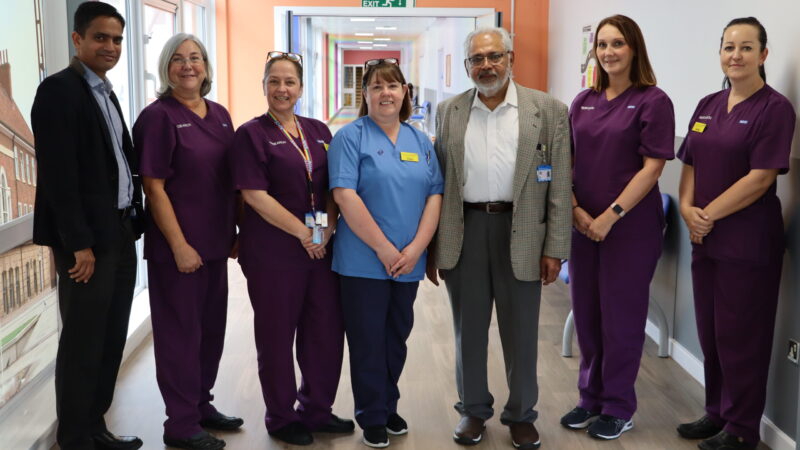
A study investigating a potential test for children who may be at risk of developing type 1 diabetes in the future is among two new trials a health trust’s research team is involved in.
The team at North Tees and Hartlepool NHS Foundation Trust is one of only two research services in the region involved in the ELSA study (early surveillance for auto-immune diabetes).
The study is testing children aged between 3 to 13 using a finger prick blood test to find markers in the blood that are a sign of a child’s risk of becoming type 1 diabetes in the future.
Dawn Egginton, paediatric research nurse, said: “Three out of 1,000 children will test positive for antibodies but we have no way of knowing who this will be.
“We now have the chance to be part of the largest antibody screening programme for type 1 diabetes in the UK.
“Any child can be involved – it doesn’t need to be someone who has visited hospital for treatment.
“And every family that takes part will be helping us understand more about type 1 diabetes for children at risk.”
Vicky Collins, research assistant practitioner, said: “If we have evidence that this test works it will be offered to all children, and parents can consent in schools and other locations”
“It is easy to take part – just follow the link, parents can watch a short video, consent online and choose to either come to one of our (outside of school hours) clinics by selecting community and then University Hospital of North Tees or request a kit to be sent home for parent/carer to complete”.
“Parents will then get results after four to six weeks and, if their child is positive, they will be offered further tests and inclusion into a monitoring programme.”
The neonatal team at the Trust is also taking part in the neoGASTRIC study – the largest ever performed in neonatal units in the UK.
The national study is looking at babies born more than six weeks early and needing a feeding tube.
All babies will be involved unless parents decide they do not want their baby to take part.
Dawn added: “This study is comparing two ways of caring for babies having tube feeds, with both being part of routine care and commonly used in the care for neonates.
“Babies are being enrolled within 24 hours of starting feeds.
“We are really pleased to be a part of the study – by simply collecting information from babies we will be able to answer the question about whether or not routinely measuring gastric residual volumes: identifies early signs of infection, reduces time to full feeds, reduces hospital discharge times.”
